Neuroscience at Somerset Campus
Edward & Anita Hogan Neuroscience Pavilion
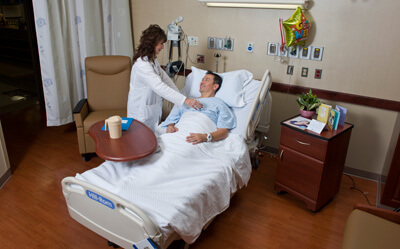
Neuroscience is the study of the nervous system. This field of medical research is one of the most important as it deals with the brain’s interactions with the rest of the human body. The cure for most neurological disorders has yet to be discovered, which makes breakthroughs in neuroscience a significant endeavor. Much is still unknown about how the brain truly functions, but the Somerset Campus has been trying to change that.
RWJUH Somerset’s Edward & Anita Hogan Neuroscience Pavilion offers an advanced, all-inclusive unit providing neurology and neurosurgery services on the fourth floor of the medical center. The unit is designed to enhance the quality of care for patients suffering from disorders of the nervous system, such as stroke, epilepsy (seizures), brain tumors, Multiple Sclerosis and Parkinson’s disease.
The neuroscience center occupies 13,600 square feet and includes:
- 18 private rooms with specially-designed baths, hardwood floors, flat-screen TVs, and comfortable living furnishings
- Rehabilitation gym
- Speech and swallowing rehabilitation room
- Physicians' reading room
- Examination and EEG prep room
- Family meeting room
- High-tech nursing station
The center is staffed by a dedicated medical team certified to provide patients with the utmost in neurological care. Specially trained nursing teams not only provide optimal upkeep of this special residence, but are attuned to the unique concerns of patients and their loved ones.
Advanced technology is the distinguishing element of the neuroscience pavilion. The new unit is equipped with the GetWellNetwork’s interactive patient education system, which affords each patient a personal account linked to his or her specific medications, daily schedule, and other medical necessities.

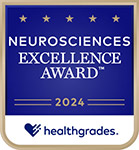
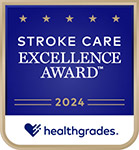
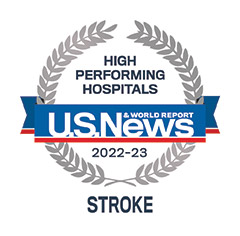 Certified Primary Stroke Center
Certified Primary Stroke Center
RWJUH Somerset is certified as a Primary Stroke Center by The Joint Commission and the New Jersey State Department of Health and Senior Services, 1 of only 21 facilities in New Jersey to achieve this designation. This means that our medical staff at the Edward & Anita Hogan Neuroscience Pavilion is ready to care for patients with strokes, but can also care for those with seizures, tumors, Alzheimer’s, Parkinson’s, and any other neurological disease. Strokes are extremely serious conditions where blood flow is restricted to a part of the brain. When this happens, a person is highly susceptible to have a permanent disability after the stroke. While many neurological disorders develop over an extended period of time, anybody can experience a stroke at any time. For this reason, we have posted some tells of a stroke below.
American Heart Association Get with the Guidelines Stroke Quality Achievement Award
This award from the American Heart Association recognizes our commitment to ensuring that people who have had strokes receive the most appropriate treatment according to nationally recognized, research-based guidelines.
Signs of a Stroke
Health care providers recommend using the B.E. F.A.S.T. system to recognize the symptoms of a stroke either during or immediately after it occurs. B.E. F.A.S.T. is an acronym to help you remember the signs.
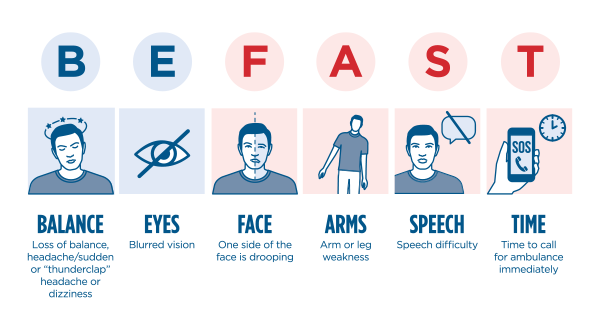
- Balance – Have you lost your balance, felt a sudden headache or felt dizzy?
- Eyes – Is your vision blurry?
- Face – Are you feeling numbness, or seeing drooping, on one side of your face?
- Arm – Do you have feeling in both arms? Can you raise them both up without one drifting down?
- Speech – Are you slurring your speech? Can you form coherent sentences?
- Time – If any of the above symptoms are occurring, call 911 immediately.
Stroke Awareness
Featuring Dr. Srinivasa Potluri, Neurologist and Neurophysiologist at Robert Wood Johnson University Hospital Somerset



